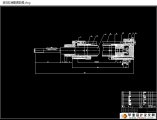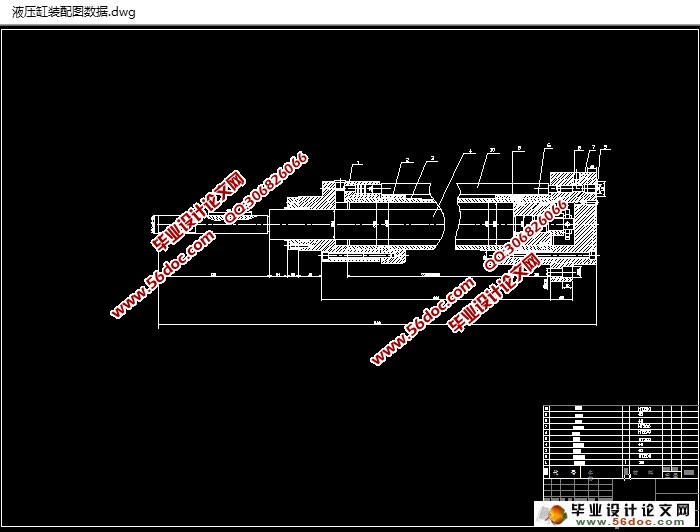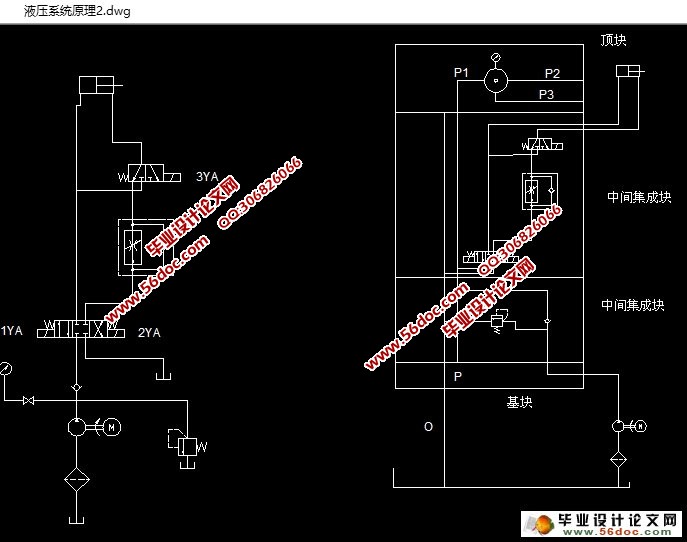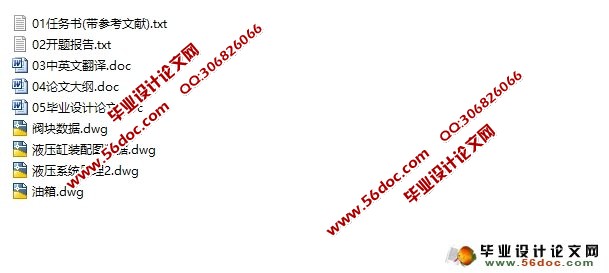发动机端面铣加工专用机床动力系统设计液压站设计(含CAD图)(任务书,开题报告,外文翻译,论文说明书7700字,CAD图纸4张)
摘要
液压系统是一门利用电能驱动电机,使用液压泵将赋予油管内油液一定的压力,驱动不同的执行元件。在整个系统中通过控制各种电磁阀单向阀改变液压油的流动方向,进而驱动液压缸完成工件在加工过程中的不同动作。满足加工工序中不同加工的操作需求。液压系统在整个设计的过程中需要对加工机床的工作状态进行详尽的分析,进而设计各个液压元件。整个液压站的装配需要考虑到不同阀类元件与油箱缸体元件之间的配合。最后还需要对整个系统进行使用性能的校核
关键词:专用机床、动力系统、液压站、端面铣
The design of hydraulic station for the power system design of the engine end milling machine
Abstract
Hydraulic system is a use of electric energy to drive the motor, the use of hydraulic pump will be given to the oil pipe in a certain pressure, the drive to drive the implementation of different components. In the whole system through the control of a variety of solenoid valve to change the direction of the flow of hydraulic oil flow, and then drive the hydraulic cylinder to complete the work of different actions in the processing process. Meet the processing needs of different processing operations. Hydraulic system in the process of the whole process of the need for a detailed analysis of the working state of the machine tool, and then design the various hydraulic components. The assembly of the whole hydraulic station needs to take into account the coordination between different valve components and the components of the tank body. Finally, the whole system needs to check the performance of the system.
Key words: special machine tool, power system, hydraulic station, end face milling
本设计所涉及的液压系统是用来驱动发动机端面铣床的动力滑台,系统要求的循环是:快进——工进——死挡铁停留——快退——原位停止。其系统的设计参数如表所示,平台的总重量为5000N,工件和夹具的总重量为3500N,快进的行程为400mm,工进的行程为150mm,快进的速度为6m/min,工进的速度为0.36m/min.加速和减速的时间均为0.5s,本设计中的导轨均采用平导轨,该导轨的动摩擦系数为0.1,静摩擦系数为0.2
目 录
摘要 III
Abstract IV
1 绪论 1
1.1 液压传动的发展概况 2
1.2 液压传动的特点及在机械行业中的应用 2
2 液压系统设计要求 4
2.1.本毕业设计(论文)课题任务的内容和要求 4
2.2.本次毕业设计需要完成的任务和需要绘制的相关CAD图纸 4
3 液压系统的设计参数 5
3.1本设计的设计参数和技术要求 5
3.2工作负载 5
3.3绘制负载图和速度图 6
4 初选液压缸 8
4.1初步选定液压缸工作压力 8
4.2确定液压缸的主要尺寸 8
4.3导向套的设计与计算 9
4.4压力、流量、功率计算 9
4.4液压缸工况图 10
5 拟定液压系统原理图 14
5.1 速度控制回路的选择 14
5.2 滑台基本回路的选择 14
5.3拟定液压系统图 14
6 液压元件的选择 16
6.1 液压泵和电机的选择 16
6.1.1确定液压泵和电动机规格 16
6.1.2液压泵的流量计算 16
6.1.3确定液压泵的规格 16
6.1.4确定液压泵驱动功率及电机的规格型号 16
6.2阀类元件和辅助元件的选择 16
6.4油箱的设计 18
7 液压系统的性能验算 20
7.1 油路的压力损失 20
7.2油液温升验算 22
8 结论 24
9 参考文献 25
|







